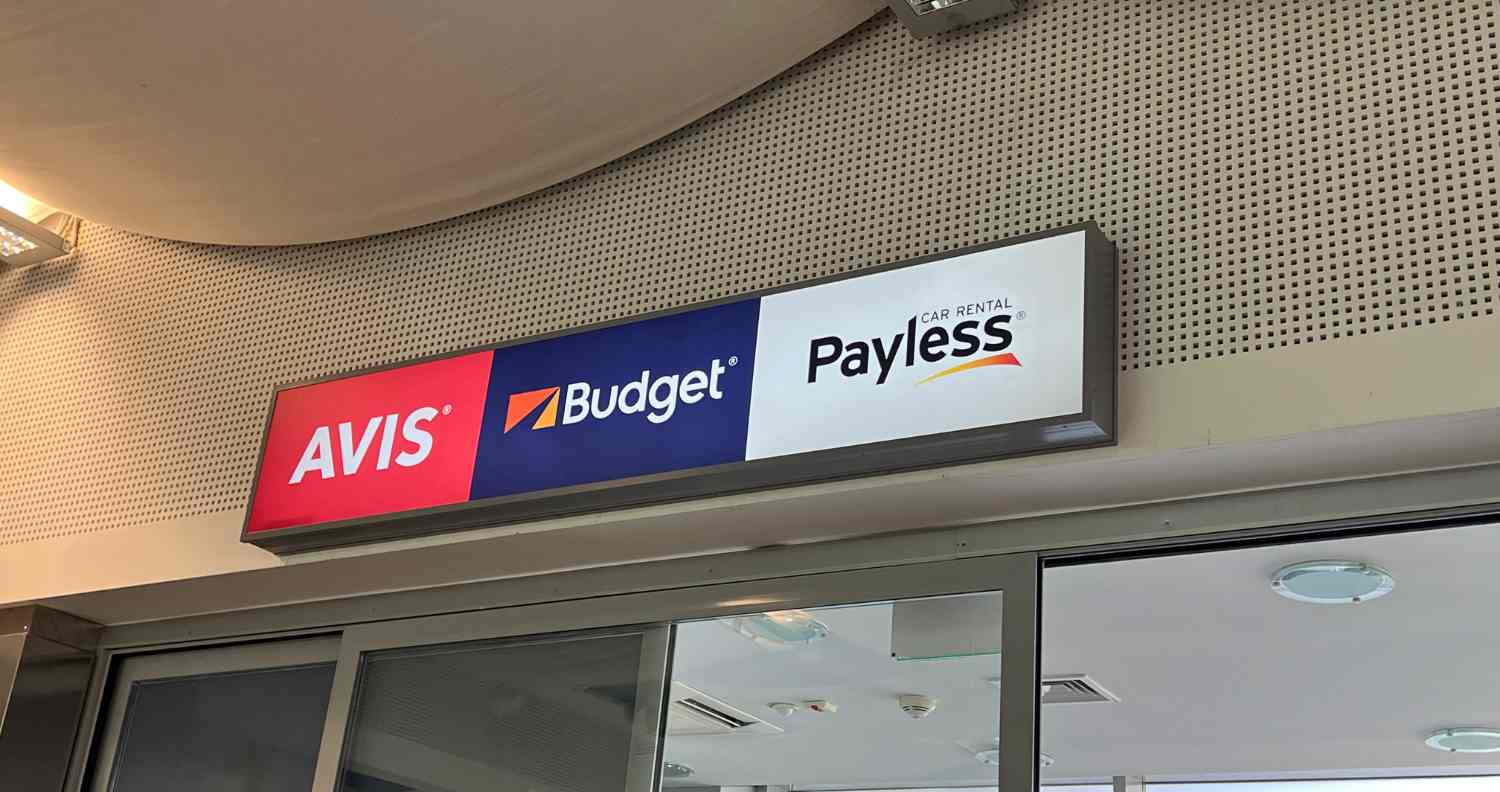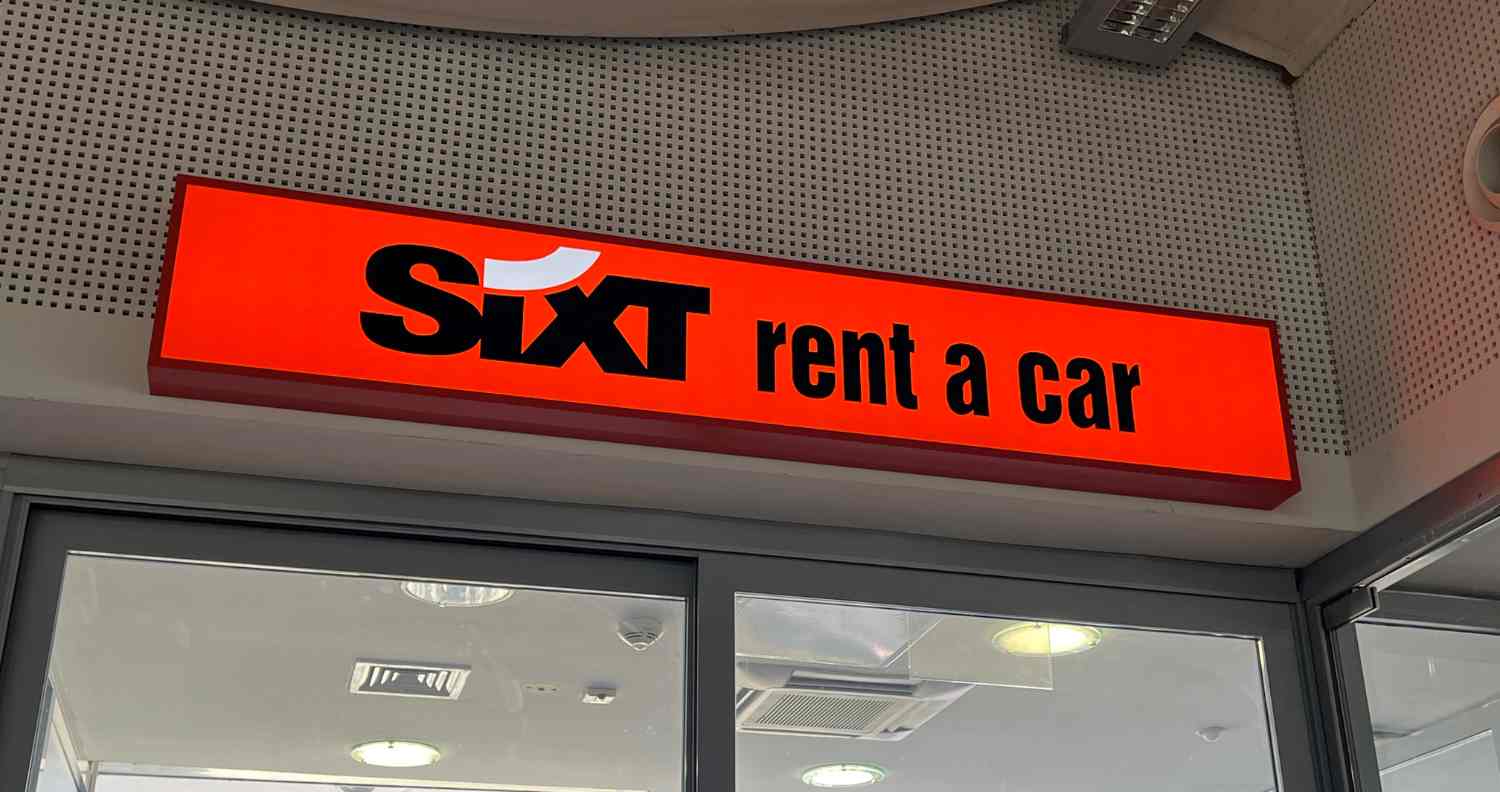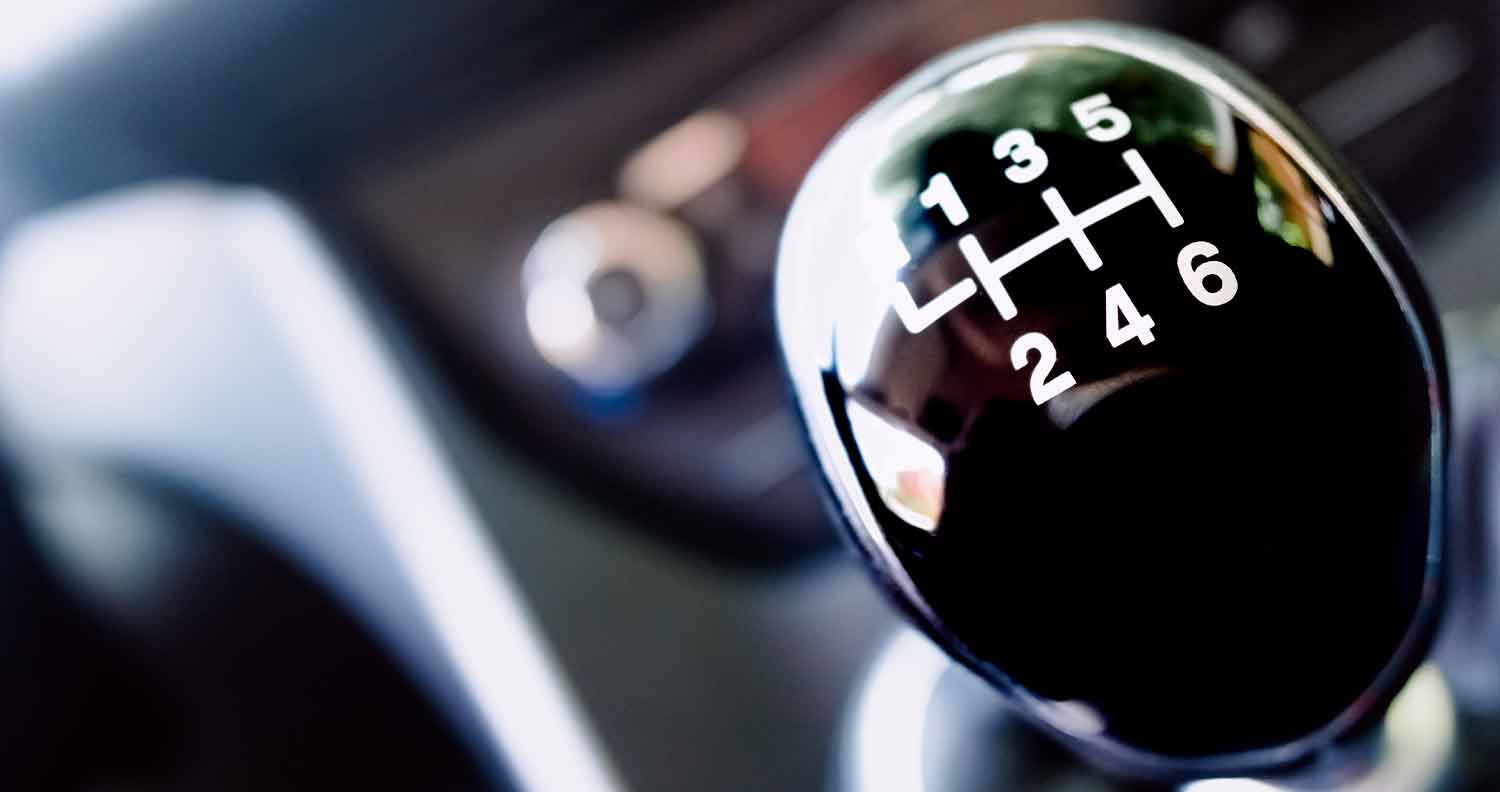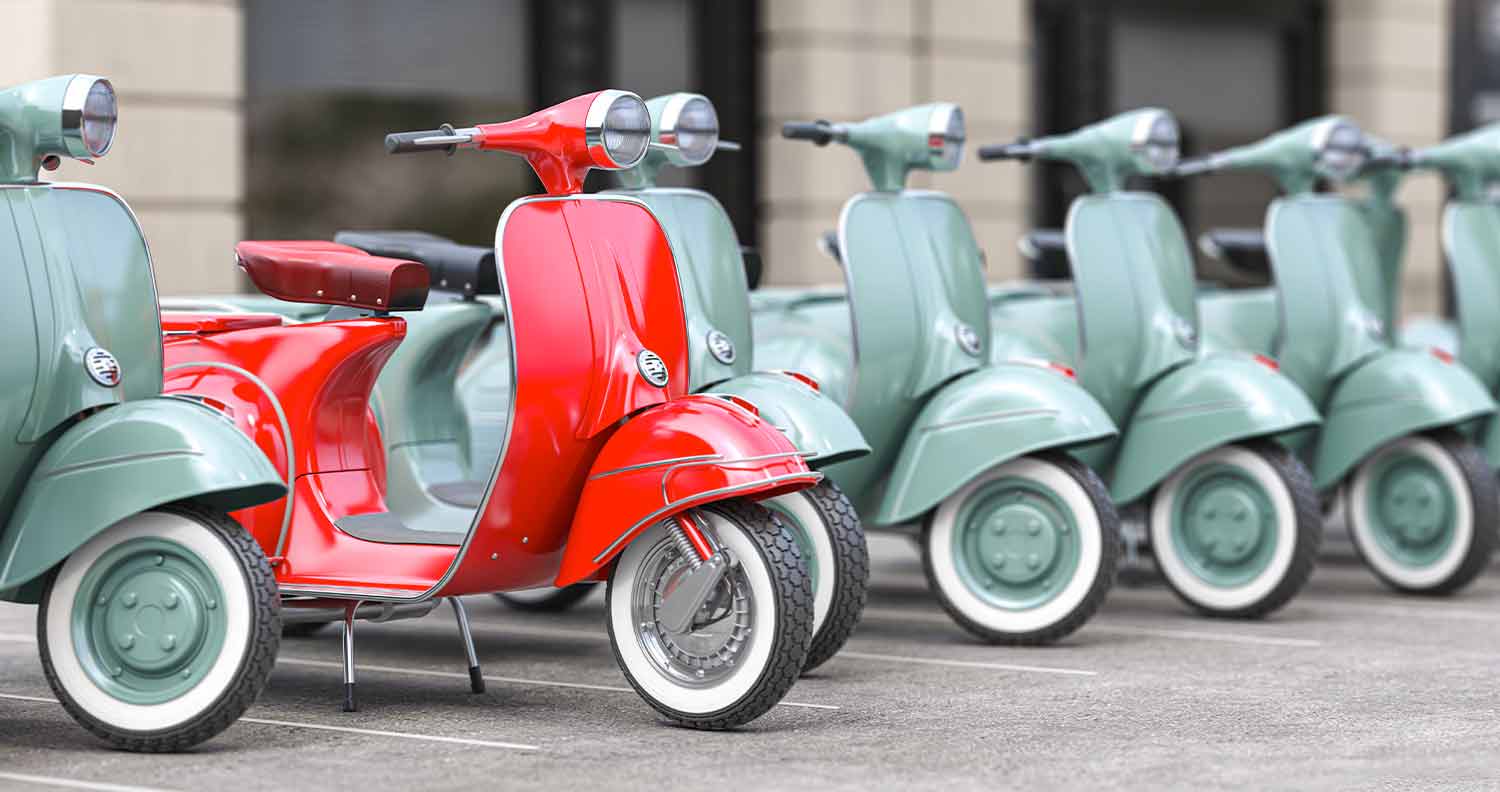I lived in London, Manchester and Ibiza for most of life so I am pretty used to crazy driving, road rage, drunken idiots on the road and, more than anything, TRAFFIC JAMS!
However, the one thing that surprised me more than anything when I first started driving in Croatia was the sheer VARIETY of international car number plates you see driving around.
People drive to Croatia from all over Europe! I have even seen number plates from as far as Russia and Saudi Arabia!
So it got me thinking, "why do so many people drive in Croatia?"
Well, it didn't take me long to figure that out. Despite Croatia being a relatively small country the cities and islands are actually quite spaced out all over the country.
Yes, there are taxis and coaches but still they can still be quite limited.
In a nutshell, to really embrace the country and to explore it fully you simply must have a vehicle.
It's like automatically UPGRADING your holiday experience with one quick decision.

Is Renting a Car in Croatia ESSENTIAL?
Let's start from the beginning. Croatia is easily one of the most beautiful countries in the world, it sits in the southeastern part of Europe directly across from Italy.
The country shares its borders with many Slavic countries, including Slovenia to its north, Hungary to its northeast, Serbia to its east, and both Bosnia & Herzegovina to its southeast.
While there are many different things about Croatia that make it a wonder to visit and enjoy, one of the more unsung and less talked about aspects is its scenic views on the different roadways.
Croatia is one of the ideal and accessible driving spots throughout the Balkans, making travel by car a relaxing and visually unbeatable process.
As I said, the mixture of number plates from differing countries will blow your mind!
From its beautiful stretches of coastline to its small and local towns, Croatia paints an almost picturesque view of the eastern European countries that are easily comparable to the winding roads of Italy or France.
Renting A Car In Croatia: Top Tips
The process of renting a car in Croatia (or any foreign country, for that matter) can be a bit of a stressful experience, especially if you don't know where to start.
While many of these locations do have English-speaking representatives to help you, it can be a challenge to know what documents are required as well as how the terms differ here compared to your country of origin.
This section should hopefully clear up some things while also offering you some different and useful tips on what to do and where to get started when you rent-a-car in Croatia.
Tip 1: Book Early
First things first, as with all travel reservations, you should book your car rental as early as possible.
While some would argue that this only really matters during the peak season, I've found that it's just a great idea overall since prices will always increase the closer you book compared to your rental date.
Keep in mind that this is especially true during said peak season. Because more people plan on booking vacations between July and August, you can expect that your vehicle options will decrease while the prices for said options will increase.
To avoid this, try to plan for your date and book as early as possible.
Tip 2: Do Your Research/Check Reviews
Once you've got a date in mind, your next thing should be to take a look at all the available companies that rent out through Croatia.
Understanding what you have available and doing the extra research to find all of the different rental companies (even those without a huge marketing budget) can potentially save you a lot of money even for the same make and model car.
Below is a quick rundown of rental companies you can find in Croatia. Consider going through one of these brands or checking if any new companies may have recently sprouted onto the scene.
Here are 10 reputable car rental companies in Croatia:
1. Sixt Rent a Car
2. Hertz Car Rental
3. Europcar
4. Avis Rent a Car
5. Budget Car Rental
6. Alamo Rent a Car
7. Thrifty Car Rental
8. Enterprise Rent-A-Car
9. Dollar Rent a Car
10. Auto Europe Car Rental
These companies have established reputations for providing quality customer service, reliable vehicles, and fair pricing.

✓ No Hidden Costs ✓ 24/7 Support ✓ Free Cancellation
Car Rental – Search, Compare, and Save up to 70%!
Tip 3: Consider Alternatives
Let's say that you're reading this a week out from your summer trip and realize that all the rental cars are at sky-high reservation prices.
What should you do?
While some sites advise just "show up and hope for the best" - that's not a great strategy, especially during the peak season.
The reality is that, if you weren't able to make a solid reservation at the time before your trip your best bet is to forgo renting a car altogether and just take the bus.
While it won't have quite the same freedom as having your own car, you can still enjoy much of your travel experience.
You may enjoy it even more since you can relax and sleep while doing it.
Tip 4: Be Aware Of One-Way Rental Fees
If you plan on renting a car in Croatia, you should be on the lookout for one-way rental fees.
These fees come by way of picking up and dropping off your car at different locations. While this process may be more convenient, it is also more expensive.
If you want to avoid these costs, be sure to determine your driving route and where you plan to go. That way you'll be able to adequately set aside time to circle back and drop your car off back at the initial pickup point.
For those that have flights leading out of different cities (such as from Split to Zadar or Zagreb), your best bet is to check out the fees and see how they compare with taking the bus from one way to the other.
Depending on the pricing, it may or may not be cheaper to just pay the fee.
Tip 5: Long-Term Rental For Longer Stays
Many people tend to get a bit anxious when deciding on what they'll do for an extended visit to a country.
While you don't want to be unreasonable, a two or three-week stay isn't nearly as expensive a rental as you may think. The truth is that longer-termed rentals tend to have more attractive rates compared to shorter ones.
While you'll probably want to rely on public transport if you're staying over a month, long-term rental options are a great way to really explore the country on your terms while not being nearly as expensive as you'd think.
Tip 6: Check Rental Office Hours
As with one-way rental fees, you ideally want to know when is the best time to pick up and drop off your rental car.
If you're flying in very late or leaving very early, understand that there is likely going to be a fee that you'll have to include in the overall price.
The best way to avoid any fees or costs is by visiting during office hours. Not only is it cheaper, but you can get any questions answered while you're there!

Read this next: Croatia Travel Guide
Tip 7: Inspect Your Car
Regardless of any car insurance, you decide to get, it's very important to inspect your car before officially picking it up and dropping it off.
This is a great tip even after returning home as it can be legal protection on the off chance that the company claims you did something that you didn't do.
Be sure to video record your inspection as this will also solidify any evidence that your claims are legitimate.
There have been many people charged "repair fees" for damages they knew they didn't inflict but had no evidence to argue against it.
Tip 8: Take Photos Before Using Car
There are a few reasons why you should take photos before using a car:
Record of existing damage: Taking photos before using a car can help you document any existing damage or issues with the vehicle, such as scratches, dents, or other signs of wear and tear. This can protect you from being held responsible for pre-existing damage when you return the car.
Evidence for insurance purposes: If you are renting a car, the photos can serve as evidence for insurance purposes in case of any accidents or incidents that occur during your rental period. This can help you avoid any disputes over who is responsible for any damages or other issues that may arise.
Peace of mind: By taking photos, you can have peace of mind that you have documented the condition of the car before using it. This can give you confidence that you won't be held responsible for any damage or issues that were present before you started using the vehicle.
Overall, taking photos before using a car is a simple step that can help protect you and give you peace of mind while using a rental or borrowed car. It's a good practice to get into before every use of a new vehicle.
Tip 9: Credit Card
As with most rental companies, a credit card is mandatory. You'll be expected to pre-authorize a security deposit. This is in case any issues come up while renting the car.
Ideally, you'll want to have around double the rental costs set aside during your stay, either for the security, the rental, or the time it will take between dropping off the car and getting your refund.
Tip 10: Refill The Vehicle Before You Return
If you're from the US, you know that gas refill fees can be exorbitant and certainly aren't worth the stress that comes with them.
It's the same in Croatia, only that gas is much higher in comparison.
Your best bet is to take the time to fill up your tank before dropping it off.
Again, this is another one of the ways companies can pull more money from their customers.
If you're trying to keep a reasonable amount of money saved up, you'll want to bite the bullet and just fill the tank completely so that there's no question

Read this next: Bus Travel in Croatia (Don't Be Shy, We all Do it!)
Driving in Croatia: Do’s and Don’ts
Now that we've had a chance to go over some of the important rental tips to consider when visiting Croatia, we'll now take a look at some of the different Croatian roadway rules to keep in mind while driving.
1. Be Mindful Of Toll Roads
As mentioned earlier, Croatia does indeed have toll roads to consider when driving. If you plan to drive for long stretches, toll roads are a great way to save time and directly get you from one place to other as fast as possible.
If you have time to spare or aren't going especially far, you can instead consider taking the rural roads off of the freeway.
These are a bit slower, yes, but they are also free and have some breathtaking scenery of the country.
2. Know Some Basic Road Sign Phrases
While you don't need to be an expert in Croatian driving, you should ideally know some valuable words and phrases while driving. Below is a list of the more commonly used words you'll hear:
- Ulaz - Entrance
- Izlaz - Exit
- Lijevo - Left
- Desno - Right
- Autocesta - Motor Way
- Benzin - Petrol Station
- Bezolovni benzin - Unleaded Super 91/95 petrol
- Dizel - Diesel
- Državna cesta - State Roads
- Ulaz Zabranjen - No Entry / Do Not Enter
- Zračna Luka - Airport
3. Understand When To Have Your Headlights On
As a general rule, headlights should only be used at night or when road visibility drops below 100 meters.
This is changed during the winter months, as visibility is naturally lowered. Between October and March, Croatian law requires that dipped headlights are used even during daylight hours.
4. Wear Your Seatbelt
An arguably universal ruling, you are expected to have your seatbelt on at all times while driving. If pulled over without one, you can be fined upwards of 65 euros ($84).
5. Be Aware Of Wind Speeds (Bura)
Croatia can be known to have some pretty harsh wind speeds, particularly in the northern parts of Zadar. There, on the A1, winds can reach between 90 and 100km/h, with winds able to reach upwards of 140km/h before the roads are closed down.

Read this next: When is the Best Time to Visit Croatia?
6. Manual Transmission Is Standard
Unlike in places like the U.S. or North America, cars are primarily manual transmission (i.e., "stick shift").
This is important both for driving as well as when renting a car. If you are looking to book a rental, understand that automatic transmissions are a rarity and a high-priced alternative. Especially in Croatia, you'll need to book well in advance while also being willing to spend a good bit extra.
7. Drive On The Right
Especially for the UK and Oz visitors this one!
In Croatia, drivers must drive along the right lane and pass using the left. If you are found driving in the left lane, you can be stopped by the police and fined.
Learn How The Ferry System Operates
Generally, you can use local ferries to take your car from the islands to the mainland and vice versa.
However, you can't take your rental car outside of the country by ferry. This includes the nearby ferry across Italy.
This is due to the fact that valid registration papers are required for the transport of a vehicle using international ferries.
Reasons NOT To Rent A Car In Croatia
While there are a lot of perks and benefits that come from renting a car in Croatia, it isn't without its drawbacks. Below are several factors you may want to consider if you plan to come to Croatia and aren't completely certain a car is necessary.
1. Aggressive Drivers
While not to the point of the worst parts of the U.S. or AUS, you'll find that Croatians can be pretty aggressive when driving. They love to illegally pass and will often pass without signaling. Again, if you've been in DC or New York, you'll likely experience much worse. However, if you're from a quieter and more respectful country (in terms of driving), there's a good chance you'll find Croatian drivers a bit intimidating.
2. You Plan On Staying At The Beach
If you're planning to spend most of your time island-hopping or staying over at the beach, there isn't going to be much time driving. In that case, it's better to skip the car altogether and just enjoy public transport or get a private car for those rare times you need to travel far and fast.
3. You Intend To Stay In An Old Town
The other reason why it wouldn't be worth it to get a car is if you plan to stay in a smaller town. Areas like Split, Zadar, or Dubrovnik are pretty much run on public transport and are nearly impossible to find a place to park anyway. Not only that, but you can also walk just about anywhere anyway!
4. You Intend to Drink A LOT of Alcohol
Drinking alcohol and renting a car in Croatia can be a dangerous combination. Alcohol impairs your judgment, slows your reaction time, and affects your ability to drive safely. In Croatia, the legal limit for blood alcohol concentration (BAC) is 0.05%, which is lower than in many other countries.
If you are caught driving with a BAC over the legal limit, you may face fines, penalties, or even imprisonment.
Additionally, if you are involved in an accident while driving under the influence of alcohol, you may be held liable for any damages or injuries that occur. It's important to remember that driving under the influence is not only dangerous, but also illegal, and can have serious consequences.
If you plan on drinking alcohol while in Croatia, it's best to use alternative transportation options, such as a taxi or designated driver, or to refrain from driving altogether.

Read this next: Rent-a-Quad in Novalja: Your Quadding Rental Guide
Rent a Scooter and NOT a Car
There are several reasons why someone might choose to rent a scooter in Croatia instead of a car:
Cost: Renting a scooter is generally cheaper than renting a car, both in terms of the rental fee and the cost of fuel.
Parking: It can be challenging to find parking in many cities and towns in Croatia, especially during the peak tourist season. Scooters are easier to park in tight spaces than cars, and some cities offer designated parking areas for scooters.
Convenience: Scooters are more agile and can navigate through traffic more easily than cars. This can be especially useful in crowded areas or when traveling along narrow roads.
Sightseeing: Scooters can provide a more intimate and immersive way to see the country. With the wind in your hair and the sun on your face, you can experience the scenery, sounds, and smells of Croatia in a way that you wouldn't be able to in a car.
However, there are also reasons why someone might choose to rent a car in Croatia, such as greater comfort and safety, the ability to travel longer distances, and the option to carry more luggage or passengers.
Ultimately, the choice between renting a scooter or a car depends on the individual's needs and preferences.
What To Ask Your Car Rental Company
The last thing we want to hit on is a few closing questions you want to ask your car rental company once you get into Croatia.
Diesel or Petrol or Electric: Unlike places like the U.S., there is a pretty extensive list of cars that are just as likely to be diesel as they would be petrol. Just ask and don't assume.
You don't want to end up making a very expensive assumption if you're wrong.
All Potential Fees or Surcharges: You want to ideally learn about as many of the additional charges as possible. Things like the young driver surcharge or the one-way drive fee or the late drop-off fee are just some of the different fees and surcharges you may want to be aware of.
Don't be afraid to ask now because they won't be afraid of charging you later.
Discounts: Just as you shouldn't be afraid of asking about any of the fees you could incur, you also shouldn't be afraid of seeing if there are any specials on the rates.
For example, if you have it reserved for a week, but the rates may be better for two weeks, if you plan to stay in the area don't be afraid to ask. You don't know what offers you're bound to get just by asking.
Scenic Views: You want to ask if there are any optimal scenic routes you may be interested in taking. While you could end up taking scenic routes all the way through,
I've found that a mix-up of rural country roads and freeways is ideal if you want to get to your location in good time while still enjoying the journey.
Road Signs: We touched on the road signs earlier but you'll ideally want to ask if there are any important signs that you should be aware of. Trust me when I say that the police aren't interested in "I'm a tourist and don't know the road signs

Read this next: Rent a Boat for the Day in Novalja? Here's how!
FAQs
How Easy Is It To Drive In Croatia?
Driving through Croatia is actually very easy, even for first-time visitors. The roads themselves are well-made, both along the freeway and the smaller winding paths in the rural areas, with the A1 freeway being extremely easy to drive on.
If you decide to travel along the more rural areas, be aware that the roads are a bit smaller and more narrow, making them slower to traverse. Still, you shouldn't have much issue even during your first visit, and by your second, you should feel right at home.
What Type Of Car Do You Need in Croatia?
While all cars are great, your best bet is as small a car as you can get. Not only will driving along the countryside be easier (smaller roads) but so too will parking in most parking spots,
For those with families or large groups, you may need to spend some time finding a larger vehicle, though you'll need to remember that parking will be more difficult.
What Documents Do You Need While Driving In Croatia?
The only thing you'll need to drive is a driver's license, insurance paperwork, and vehicle registration.
Does Croatia Have Any Toll Roads?
Croatia does have toll roads. You can pay directly at the toll gates or electronically with a vignette.
If you wish to avoid the toll roads, you can do so by driving through rural areas. This method, while slower, is free and lets you enjoy the scenery!
Do I Need To Have An International Driver's License To Drive In Croatia?
Yes. Croatia is mandated, by law, to require drivers to have an International driver's permit as well as an international driver's license.
If you are in the country for over six months, you must obtain a Croatian driver's license.
Do You Need A Vignette (Electric Payment) For Croatian Tolls Roads?
No, they are not required. If you do not have an electric payment unit, you can pay directly at the toll gates.
What Is Croatia's Speed Limit?
Depending on where you are in the country the speed limit can change. When in inhabited areas, you'll only be able to go around 50km/h (31mph) if not expressly stated otherwise. In other areas that are more explicit, the speed can go as high as 80km/h (50mph).
When outside of inhabited towns or cities, the speed limit can raise to 90km/h (56mph), while expressways have speed limits that generally reach upwards of 110km/h (68mph).
Speeding is a very expensive and serious offense, so don't do it. Fines can range anywhere between 65 and 2,000 euros.
Is It Dangerous Driving In Croatia?
Not at all. When driving along the freeway, you should expect the same amount of aggressive driving as you would in Germany, Australia, or certain parts of North America. If you are driving in more rural areas, it is very safe, albeit very slow.
What Is Considered Drunk Driving In Croatia?
In Croatia, you are considered drunk driving if your Blood Alcohol Limit is 0.05% or higher. If you are under 24, any noted alcohol in your system is recognized as driving under the influence.
What Is The Best Way To Tell The Different Road Signs Apart?
In most cases, the rental agency will let you know what road signs to look out for. Motorway signs will have the letter "A" followed by two number digits. These signs will also have a green background along with a motorway picture in white.
Country roads, on the other hand, will have the letter "Z" along with four numbers. State roads will have the letter "D" and two numbers after it.
How Much Is A Car Rental In Croatia?
Car rental prices vary based on the season as well as the time of booking. Generally, peak season will be more expensive, requiring around 100 Euros per day minimum.
This pricing can often drop to as low as 20 Euros per day if going during the low season.
The price is also determined by the type of car you get, the size, and whether it is manual or automatic, with manual generally being much more affordable.
Can I Drive A Croatian Car To Another Country?
Yes, if you rent a car while in Croatia, you can drive it out to another country. Keep in mind, however, that you may be charged a cross-border fee by the rental companies.
Can I Drive Between The Different Regions In Croatia?
Absolutely! Whether you're trying to get between Split to Dubrovnik or virtually any of the other regions throughout the country, there should be a road that you can drive through. The trip from Dubrovnik to Split has been a longstanding and popular pass time for many self-driving tours.

Read this next: How To Travel Croatia On A Budget: Affordable Travel Tips
Renting A Car In Croatia: Summary
In conclusion, renting a car in Croatia is a great way to explore this beautiful country and its diverse landscapes and attractions.
With its well-maintained road network, easy access to major cities and towns, and stunning scenery, Croatia offers a road trip experience that is second to none.
However, it's important to do your research and choose a reputable car rental company, read and understand the terms and conditions of the rental agreement, and comply with local laws and regulations.
With careful planning and preparation, renting a car in Croatia can be a safe, enjoyable, and unforgettable experience.
Whether you're driving along the Dalmatian Coast, exploring the Plitvice Lakes National Park, or taking in the sites of Pag Island, a rental car can help you make the most of your time in Croatia and create memories that will last a lifetime.

✓ No Hidden Costs ✓ 24/7 Support ✓ Free Cancellation


